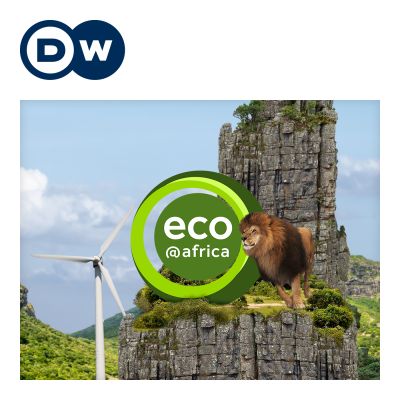DW's Eco Africa showcases innovative concepts and best practice projects from Africa and Europe and presents environment and climate change ideas that inspire others to get on board or start something of their own.
https://www.dw.com?maca=en-podcast_en_environment_magazine-21495-xml-mrss
Gesamtlänge aller Episoden: 3 days 51 minutes
Resolving conflicts between Ghana’s farmers and herdsmen
As climate change exacerbates the competition for land and resources, conflicts between farmers and nomadic herdsmen have increased in many West African countries. We go to Ghana to see how the tensions can be resolved.
How Goma wants to say goodbye to plastic bags
A factory in Goma, DRC, produces biodegradable bags, which its founder hopes will start replacing the plastic bags strewn about the city’s streets and clogging up its sewers.
How virtual reality helps cotton farmers boost yields
In Cameroon, cotton farmers are offered training courses that use virtual reality teaching aids to help them adjust to the effects of climate change. For example, they put on VR glasses and practice pest control on virtual fields.
Turning e-waste into museum pieces in Uganda
Electronic waste is a big problem in Africa. Unfortunately, a lot gets sent from richer countries, often illegally, and ends up in landfills. If electronics aren't disposed of properly, the chemicals inside can poison the air, soil and water. We meet a man who saves old electronics from the junkheap.
Turning human waste into energy in Kenya
In rural communities in Kenya, human waste is being harnessed for energy as part of a project to replace firewood and help keep waterways clean. The aim is to turn excrement into briquettes or use it to fuel waste-to-energy plants.
Protecting migratory birds with green tourism
Countless migratory birds head for Egypt each year. But many don't survive the journey across the country. Now a local NGO is trying to protect the birds and help their hunters put their skills to better use through bird watching vacations.
NGOs take on rising sea levels in Cameroon’s Douala
Douala, Cameroon’s economic hub in the Gulf of Guinea, is losing coastal land to ever more frequent floods. NGOs are planting mangroves to prevent erosion and sequester carbon, and educating locals about the ecosystem.
Crete gets to grips with invasive lionfish
As oceans grow warmer, non-native species are moving in. Lionfish are highly venomous marine creatures and in recent years they've reached the Mediterranean via the Suez Canal. In Crete they're causing all sorts of problems.
Lighting up rural Zimbabwe
In rural Zimbabwe, only 30% of people have access to electricity. An engineering student has designed a lamp made from upcycled plastic bottles and used LED lights that provides solar-powered illumination and also tackles plastic and e-waste.
Bikes help girls in rural Uganda get an education
In Uganda 30,000 girls drop out of school annually, often simply because it’s hard for them to reach their school. An organization helps girls to get an education by providing them with bicycles.
